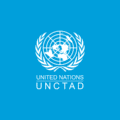Consultant to prepare NPCGA for Mozambique and Zimbabwe
Geneva, Switzerland
JOB DETAIL
Result of Service
The Consultant will produce report of the National Productive Capacities Gap Assessments for Zimbabwe and Mozambique.
Work Location
Home-Based
Expected duration
05/03/24 to 04/07/24
Duties and Responsibilities
Under the supervision of the project officer in the ALDC Division, the consultant shall prepare two National Productive Capacities Gap Assessments (NPCGAs), examining key binding constraints facing the development of productive capacities in Zimbabwe and Mozambique, and providing policy recommendations. The NPCGAs should be prepared according to the structure in Annex I. 1. The work of the consultant will be guided by the definition and components of productive capacities provided by UNCTAD. The NPCGAs will build on a set of data to be provided by UNCTAD and be complemented using both quantitative and qualitative evidence gathered by the consultant. Based on an analysis of the data, as well as a qualitative desk review and interviews with relevant national stakeholders, wherever applicable, the consultant will: – Provide a comprehensive assessment of the level of development of productive capacities and the reasons behind the countries’ PCI performance and the specific factors affecting the countries’ overall score and sectoral scores. The assessments shall further articulate key or major binding constraints to fostering productive capacities and structural economic transformation at the national level, including institutional limitations and gaps in policy formulation and implementation. The studies shall further examine traditional / new / actual / latent comparative advantages and make practical country-specific recommendations on policies and measures to build productive capacities and strengthen the domestic policy-making capacities, including through improved policy and institutional coordination. The recommendations are expected to be implementable and realistic in unlocking key binding constraints impeding the full realization of the potential for inclusive growth. 2. Specifically, the consultant will follow the structure of the report as presented in Annex I: • Provide an overall assessment of socioeconomic performance of Zimbabwe and Mozambique, together with challenges, prospects and opportunities for further growth. • Examine existing policies and institutional frameworks and list key binding constraints facing Zimbabwe and Mozambique. • Analyze the productive capacities overall and in eight components, using the Productive Capacities Index. The eight components include: natural capital, human capital, transport, energy, ICT, private sector, institutions, structural change. • Identify specific areas of productive capacities that require action by the government and international support measures to build socioeconomic resilience to adverse shocks and realize the countries’ development vision. • Provide concrete country-specific recommendations of policies and measures to improve the building of productive capacities in the identified areas. These policy recommendations should be divided into national interventions, and interventions in collaboration with the international community. • Identify needs for technical assistance to build the capacity of policymakers to ensure that Zimbabwe and Mozambique are able to foster productive capacities.
Qualifications/special skills
An Advanced University degree (Master) in Economics, Development Economics, or related field, is required. At least 3 years of experience in the area of economic research and/or economic policy-related work in development are required. Expertise in working on productive capacities, preferably including the preparation of at least two National Productive Capacities Gap Assessments, is required. Ability to work closely with and extract statistical and analytical information from relevant government institutions, think-tanks, regional organizations, government offices, as well as national and international documents containing research results, is required. Knowledge of the development challenges facing African LDCs and LLDCs, and a good understanding of the 2030 Agenda for Sustainable Development and Sustainable Development Goals (SDGs), is desirable.
Languages
Fluency written and spoken (with an excellent research and drafting skills) in English is required.
Additional Information
Not available.
No Fee
THE UNITED NATIONS DOES NOT CHARGE A FEE AT ANY STAGE OF THE RECRUITMENT PROCESS (APPLICATION, INTERVIEW MEETING, PROCESSING, OR TRAINING). THE UNITED NATIONS DOES NOT CONCERN ITSELF WITH INFORMATION ON APPLICANTS’ BANK ACCOUNTS.
